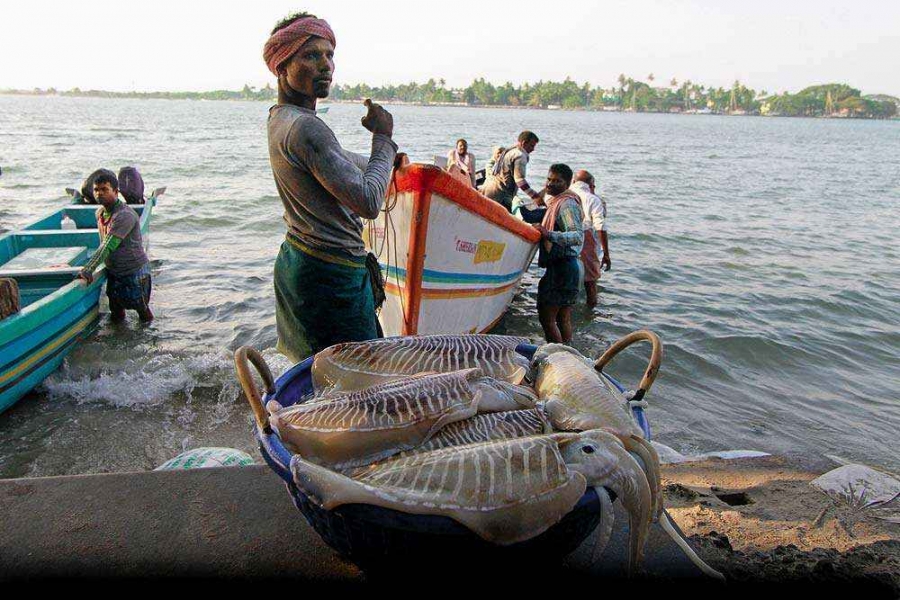The issue of Indian fishermen caught by or shot by Sri Lankan Navy is something which we hear almost every other day. This issue is something which both the governments want to get done with. This has become an issue because a lot of fishermen in India have been either killed or assaulted by the Sri Lankan Navy, their boats have been destroyed by the Sri Lankan Navy thereby aggravating the situation. So, what’s the issue all about and when did it start might be the question lingering in many minds now. Let’s get right into it.
On 26th-28th June, 1974, a maritime boundary agreement was signed between India and Sri Lanka regarding the ‘Boundary in Historic Waters of Palk Strait and Related Matters’ and it became effective from the 8th of July, 1974. A supplementary agreement was signed in 1976 and the maritime boundary was delineated in the Gulf of Mannar and Bay of Bengal.
An island called Kachchatheevu was also given to Sri Lanka in 1974, which is the cause of many issues. This island was frequented by Indian fishermen, who used the island as a staging post to dry their nets and their catch.
In the pre-Independence era, the island was part of the zamindari of Raja of Ramnad and when the zamindari system was abolished, it became a part of the Madras Presidency. When the maritime boundary in Palk Bay was taken up by the two governments, Sri Lanka maintained that Colombo exercised control over the island from very early times. The island was then ceded from India to Sri Lanka, which was a political decision taken by the two Prime Ministers who were “very good friends”. As ceding an area from India would require a ‘Constitutional Amendment’, it was declared as a disputed territory.
When the first agreement was signed in 1974, the traditional fishing rights of the Indian fishermen to fish in and around Kachchatheevu was protected, but when the supplementary agreement was signed, this traditional right was also given away by the Indian government, in a severe blow to Indian fishermen.
So what’s the issue about? Well, fishing is the major livelihood for majority of the people living in coastal villages. Indian fishermen are no different. The sea on the Indian side is shallow and the possibilities of catching fish in a huge bulk is minimal. Thus, the Indian fishermen prefer the Kachchatheevu island area in the strait where the fish reserves are abundant due to the deep waters and the rocky formation in the region. Colombo views this act from the Indian fishermen as illegal and also an act of depriving their fishermen of the marine wealth in the region.
During the ‘Fourth Eelam War’ (2006-09), the Sri Lankan fishermen were not allowed to fish in the region as the Sri Lankan Navy had imposed restrictions to keep the interaction between the Indian Tamils and the Sri Lankan Tamils to the bare minimum. It was during this period, it has been noticed that the activity of the Indian fishermen in the region increased. Once, the Sri Lankan fishermen were back to fishing, they complained about the presence of Indian fishermen, which adversely affects their livelihood.
Since then, there has been an increase in the arrests of Indian fishermen by the Sri Lankan Navy and it has also led to strained ties between the two countries as no solution could be brought forth.
There can be a few steps taken by both the countries to make sure there is a smooth relationship between both the countries. Dr. A P J Abdul Kalam had once opined that the Indian fishermen and the Sri Lankan fishermen could fish in the region on alternate days, which would definitely reduce the altercations to an extent.
A new agreement must be signed between India and Sri Lanka declaring that the Kachchatheevu island as a common fishing ground rather than a sovereign territory of Sri Lanka.
As a responsible country and a soon-to-be superpower, we cannot ignore the Sri Lankan fishermen’s interest by giving focus only on our fishermen though that should be the priority, we should make sure that a decision should be taken which acts as a win-win situation for both the parties. As long as such a decision is not worked out, there will be issues in the region thereby further worsening relations between the two neighbours.
Sources:
http://isssp.in/india-sri-lanka-battle-over-fishing-grounds/#more-2019
http://www.idsa.in/idsacomments/IndiaSriLankaFishermenProblem_gsen_180614
http://www.ipcs.org/article/india/india-sri-lanka-and-the-kachchatheevu-crisis-a-fact-sheet-3917.html
